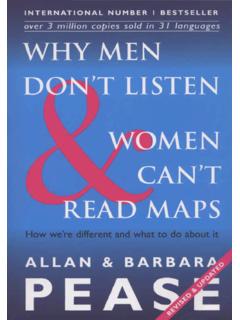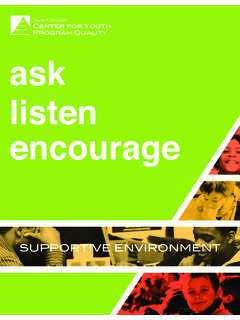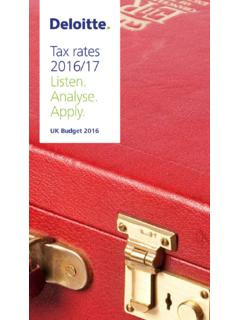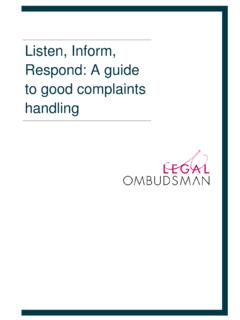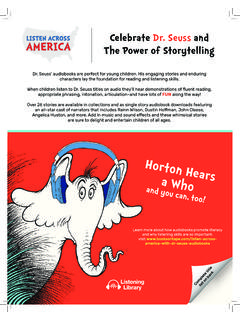Transcription of Listen To Me Part Four - In Care Survivors Service …
1 Listen To Me Part Four Self Help Part One Self Help Tips Contents Anxiety Dealing with Flashbacks Grounding and Safety Techniques Post-traumatic Stress Disorder Psychological and Emotional Trauma Reach Out to Your Childhood Relaxation Techniques Part 2: What Helps Me Relax? Some Quotes to Ponder The Process of Change Self Awareness Exercises Healthy Eating on a Budget Anxiety give in to it or control it? Here are 12 tips for alleviating and overcoming anxiety: 1. Lack of control over your thoughts strengthens your anxiety.
2 As negative thoughts get stronger and stronger, your anxiety gets stronger. You need to learn to control your thoughts. 2. Feelings and emotions fuel and strengthen anxiety. You need to learn some self discipline and control over your feelings, and you also need to develop emotional and mental detachment. you go to bed at night, and first thing when you wake up in the morning, think about the good things that are happening to you. There are always some good things happening, even if small and insignificant.
3 4. Start the day with several minutes of positive affirmations. Tell yourself how would like your day to be. Use positive, cheering and motivating words. 5. Be busy, do something. By doing something you keep your mind off your anxiety. When you wake up in the morning start doing something right away, and keep busy all day. Cleaning the house, washing the dishes or working in your garden, reading, studying, meditating or exercising your body can help you keep your mind away from anxiety. Just sitting around and thinking about your problems and worries won't make them go away.
4 6. Set a goal and work everyday to achieve it. This action will direct your thoughts and feelings away from worries and anxieties, toward something more positive. Anxiety 7. Talk about your anxieties to someone you trust. Talking about your anxieties and feelings often alleviate them and put them in the right proportions, provided you talk objectively, and with a real desire to reduce or get rid of your anxiety. 8. Exercising is a good way to keep from letting your fears overwhelm you. You can walk, do yoga or aerobics or any other sport.
5 9. Find reasons to laugh. This will bring light and happiness into your life and drive anxiety away. Watch comedies, be with happy and amusing friends or read something that makes you laugh. 10. Use positive words in your conversation and in your inner talk. 11. Affirm and visualize positive situations and events. Visualize a happy and positive solution to your problems. 12. If watching the news fills you with anxiety - turn off the TV! Limit the time you watch the news, and don't watch anything that may upset you before you go to bed.
6 Dealing with Flashbacks What are flashbacks? Anyone who has experienced sexual abuse, rape or any other traumatic event can experience flashbacks. Flashbacks are a memory of a frightening or painful experience, which occurred either in childhood or adult life. It tends not to be like an ordinary memory, but more a sudden and unexpected intrusion. Flashbacks can be experienced as a single slide from a slide show, a snapshot or photograph that flashes repeatedly or like a video clip. A flashback can feel almost as real as when it originally happened and can also be as frightening.
7 Not everyone's flashbacks are visual. Some take the form of words and phrases or sounds that were heard in the past. They can be accompanied by intense feelings, shame, sadness, anger, or physical sensations known as body memories', which may have been felt at the time of the original abuse. Flashbacks can happen at any time, anywhere and often occur without warning. They can be triggered by, the time of year or day, TV programmes, films, smells, words, phrases, songs, places, someone who reminds you in some way of your abuser, pictures, tastes, a particular feeling such as fear or anxiety, having sex or being intimate with your partner.
8 These can occur instantly or sometime later. Sometimes a flashback can occur in response to hearing voices that tell you to do things, harm yourself or someone else. Hearing voices can be very frightening. ( have good resources for those who hear voices.). Ideas on how to cope with flashbacks Let yourself know that what you are experiencing is a flashback and that this is a normal reaction to the abuse you experienced. It may be useful to look around you and take note of what is happening in the here and now.
9 Use objects and activities associated with being an independent adult to ground yourself during flashbacks. Most useful are things that you have or can do now which weren't available to you as a child, or when the abuse took place, holding car or house keys, typing on a computer keyboard, listening to music on headphones. Also useful is a first aid kit'. (where a person collects a number of items that have good here and now associations to safe people, good memories and calming sensations). Try to associate to your immediate surroundings by feeling where your body makes a boundary with the chair and floor ( feel the arms of the chair against your arms and your feet on the floor') name things with your senses ( what can you hear that tells you are in the present?)
10 ' name 5 things in this room that are green?'). A useful question for you to consider is Think of something that you know is real now that helps you to know that (event) is in the past, that you survived it and are safe now.'. You may find it reassuring or grounding to carry a stone or something familiar and comforting in your pocket that you can stroke, hold or rub when a flashback occurs. Some people keep an elastic band around their wrist and ping it' to try and bring them back to the here and now.
